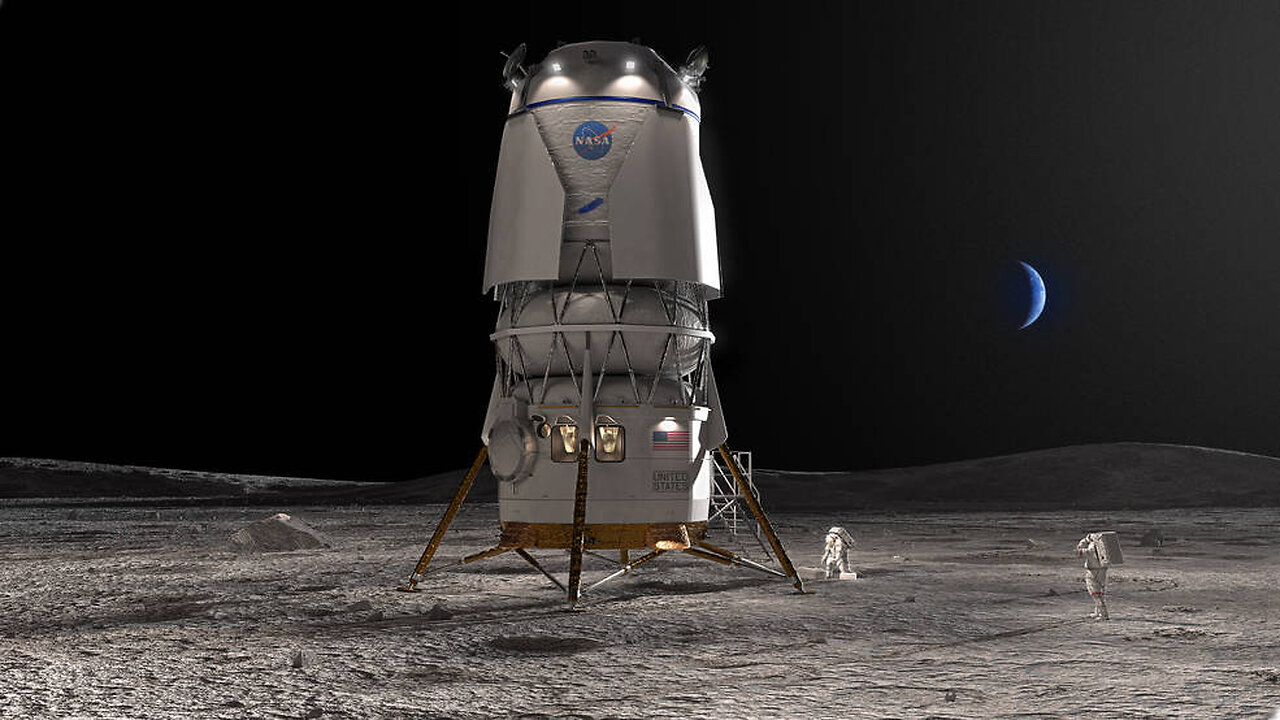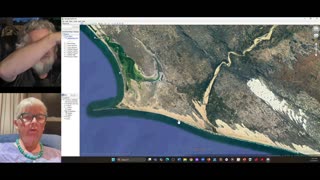Premium Only Content

NASA Explores Earth’s Connections
Earth Science Missions: NASA conducts a wide range of Earth science missions that gather data about our planet's atmosphere, oceans, land, and ice. These missions provide critical information about Earth's climate, weather patterns, and changes in various environmental factors. For example, the "Earth Observing System" (EOS) satellites collect data on atmospheric composition, sea level, land use changes, and more.
Climate Studies: NASA plays a crucial role in studying Earth's climate by monitoring temperature trends, sea level rise, carbon dioxide levels, and other factors that contribute to climate change. The agency's research helps scientists better understand the causes and effects of climate change.
Global Monitoring: NASA satellites monitor various environmental indicators on a global scale, such as deforestation, urbanization, and natural disasters. This data is essential for understanding how human activities and natural processes impact Earth's ecosystems.
Weather Forecasting: NASA contributes to weather forecasting by providing data on atmospheric conditions, such as temperature, humidity, and wind patterns. This information helps meteorologists improve the accuracy of weather predictions and severe weather warnings.
Ocean Studies: NASA's Earth science missions also include observations of Earth's oceans. Satellites track ocean currents, sea surface temperatures, and changes in sea ice extent. This information is vital for understanding ocean circulation patterns and their impact on climate.
Air Quality Monitoring: NASA monitors air quality and pollution levels using satellites that measure pollutants and aerosols in the atmosphere. This information helps governments and organizations make informed decisions to improve air quality and public health.
Natural Hazard Assessment: NASA's observations help in assessing natural hazards like earthquakes, volcanic eruptions, and tsunamis. Satellite data can be used to monitor ground deformation and detect potential signs of imminent geological events.
Ecosystem Studies: The agency studies the interactions between Earth's ecosystems, including forests, oceans, and wetlands. This research helps us understand the complex relationships between different components of the environment.
Space-based Observatories: NASA launches space-based observatories equipped with advanced sensors and instruments that collect data across various spectrums, enabling a comprehensive understanding of Earth's interconnected systems.
Data Sharing and Collaboration: NASA collaborates with other international space agencies and scientific organizations to share data and insights. This collaborative effort enhances our understanding of Earth's systems and their connections on a global scale.
-
![Mr & Mrs X - [DS] Trafficking Empire – The Pedo Network Island, The Cover-Up: Part 2 - Ep 6](https://1a-1791.com/video/fww1/f8/s8/1/y/p/x/f/ypxfz.0kob-small-Mr-and-Mrs-X-DS-Trafficking.jpg) LIVE
LIVE
X22 Report
16 hours agoMr & Mrs X - [DS] Trafficking Empire – The Pedo Network Island, The Cover-Up: Part 2 - Ep 6
625 watching -
 27:15
27:15
Liberty Hangout
2 days agoThe Most DELUSIONAL Democrats on Earth!
5.56K107 -
 13:13
13:13
Mrgunsngear
16 hours ago $1.95 earnedStreamlight TLR-1 HP Review: Can It Dethrone Surefire?
13.7K9 -
 38:41
38:41
JohnXSantos
22 hours agoHow To Start A CLOTHING BRAND on a BUDGET! Step X Step (2025)
41 -
 1:26:34
1:26:34
Man in America
18 hours agoExposing the Cover-Up That Could Collapse Big Medicine: Parasites
64.8K59 -
 30:57
30:57
Her Patriot Voice
15 hours ago $13.09 earnedDemocrats More Unhinged Than EVER Before!
86K126 -
 29:13
29:13
Clownfish TV
23 hours agoGen Z are Becoming the Boomers?! | Clownfish TV
9.25K35 -
 1:48:31
1:48:31
Squaring The Circle, A Randall Carlson Podcast
18 hours agoMEGA Tsunamis and the formation of our World ft. Dr. Dallas Abbot
22.8K5 -
 29:26
29:26
Advanced Level Diagnostics
2 days ago2019 Chevy Express - No Crank, Relay Clicking! Diag & Fix!
3 -
 30:56
30:56
5AMPodcast
22 hours agoCitizen Journalism 🎙️Replacing Traditional Media | Sam Anthony on 5 AM Podcast
171